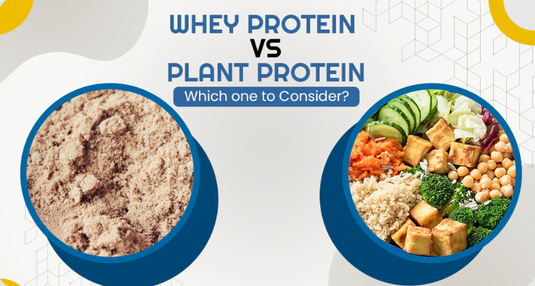Introduction
In the realm of nutrition, few topics have ignited as much controversy and confusion as protein. A widely misinterpreted WHO report has fueled a firestorm of misinformation, leaving many people perplexed about the role of protein in their diet. This blog aims to dispel the myths, clarify the WHO's stance, and provide a balanced perspective on protein consumption.
The Great Protein Myth: A Closer Look
The WHO report in question did not, contrary to popular belief, declare protein to be harmful or unnecessary. In fact, it emphasized the vital role of protein in human health. The crux of the issue lies in the report's focus on excessive protein intake, particularly in certain populations.
Unfortunately, this nuanced message was lost in translation, giving rise to a wave of fear-mongering and oversimplification. Suddenly, protein became the dietary villain, with people questioning the merits of their cherished protein-rich foods like chicken, fish, lentils, and eggs.
Deconstructing the WHO Report
To truly understand the WHO's position, it's essential to examine the key points of the report:
- Protein is indispensable: The report unequivocally affirmed the critical role of protein in human growth, repair, and overall well-being. It is a macronutrient that cannot be replaced by other nutrients.
- Excessive protein consumption: The report raised concerns about the potential negative consequences of consuming far more protein than the body requires. This is particularly relevant for individuals with certain health conditions, such as kidney disease.
- Balanced diet is paramount: The WHO emphasized the importance of a diverse diet that includes a balance of protein, carbohydrates, and fats. This holistic approach to nutrition is crucial for optimal health.
- Plant-based protein promotion: The report encouraged people to incorporate more plant-based protein sources into their diets. This recommendation aligned with the global push for sustainable and healthy eating habits.
Debunking the Protein Myths
Let's address some of the most pervasive misconceptions about protein and the WHO report:
Myth 1: Protein is inherently bad for you.
- Truth: Protein is an essential building block of our bodies. It is involved in countless biological processes. The issue arises when protein consumption is excessive and unbalanced.
Myth 2: Minimal protein intake is sufficient.
- Truth: Protein requirements vary based on factors such as age, sex, activity level, and overall health. While some individuals may thrive on lower protein intakes, others, especially those with high protein needs, require adequate amounts.
Myth 3: All protein sources are created equal.
- Truth: While all protein sources provide amino acids, the essential building blocks of protein, the quality and bioavailability of these amino acids differ. Animal-based proteins are generally considered complete proteins, containing all essential amino acids, while plant-based proteins may be incomplete. However, combining various plant-based proteins can provide a complete amino acid profile.
Myth 4: A completely plant-based diet is mandatory for health.
- Truth: The WHO report does not advocate for a strict vegan or vegetarian diet. It simply promotes the inclusion of more plant-based protein sources in the diet. A balanced approach that incorporates both plant and animal-based proteins is often recommended.
Finding Your Protein Sweet Spot
Determining the optimal protein intake for an individual is complex and depends on various factors. General guidelines include:
- Prioritize a balanced diet: Incorporate a variety of protein sources, such as lean meats, poultry, fish, eggs, dairy, legumes, nuts, and seeds, into your meals.
- Listen to your body: Pay attention to hunger cues and avoid overeating.
- Consider your activity level: Individuals engaged in regular physical activity may have higher protein requirements.
- Consult a healthcare professional: If you have specific concerns about protein intake or overall health, seek guidance from a qualified expert.
Beyond the Headlines: A Deeper Dive
While the WHO report has sparked a global conversation about protein, it's essential to view it within the broader context of nutrition. Other factors, such as overall calorie intake, macronutrient balance, and micronutrient status, play equally important roles in health and well-being.
Moreover, the focus on excessive protein intake should not overshadow the importance of adequate protein consumption for various populations, including children, adolescents, older adults, and athletes.
Conclusion
The protein panic fueled by the misinterpreted WHO report is a classic example of how complex scientific information can be distorted in the media. By understanding the actual findings of the report and separating fact from fiction, we can approach protein consumption with a balanced and informed perspective.
Ultimately, the key to a healthy diet lies in moderation, variety, and individual needs. By incorporating a diverse range of protein sources into your meals and paying attention to your body's signals, you can ensure that you are meeting your protein requirements without compromising your overall health.
Would you like to explore specific aspects of protein intake, such as protein for weight management, plant-based protein alternatives, or protein supplements?




Receive the Blog via Email Daily
Please fill out the form below and we’ll get back to you within 24 hours.




















